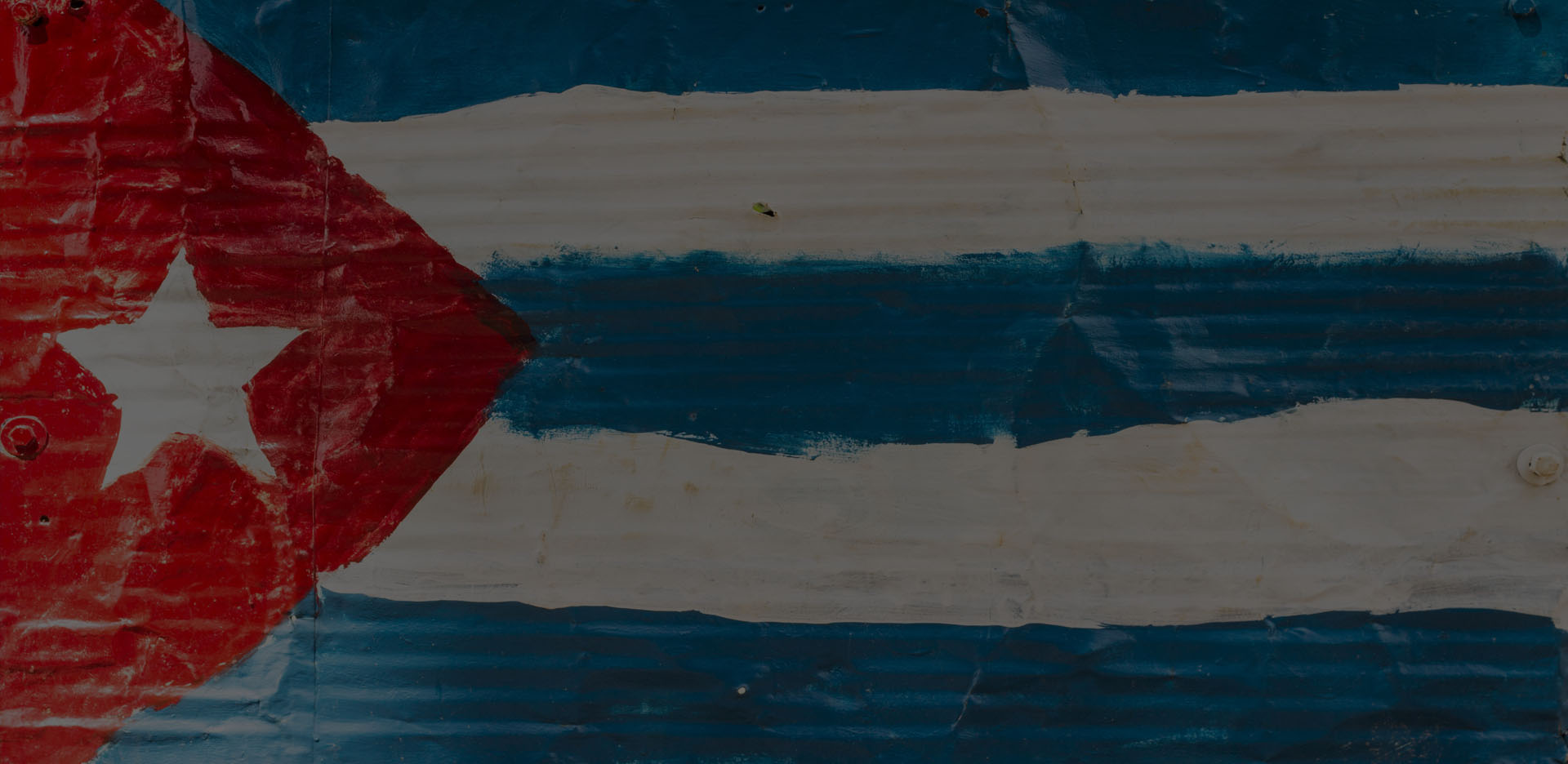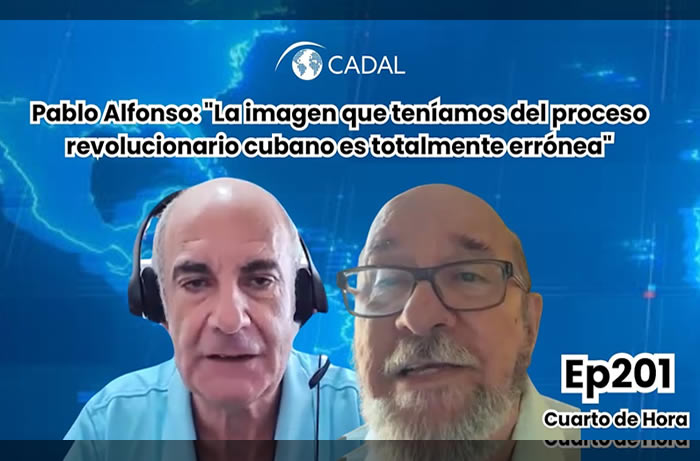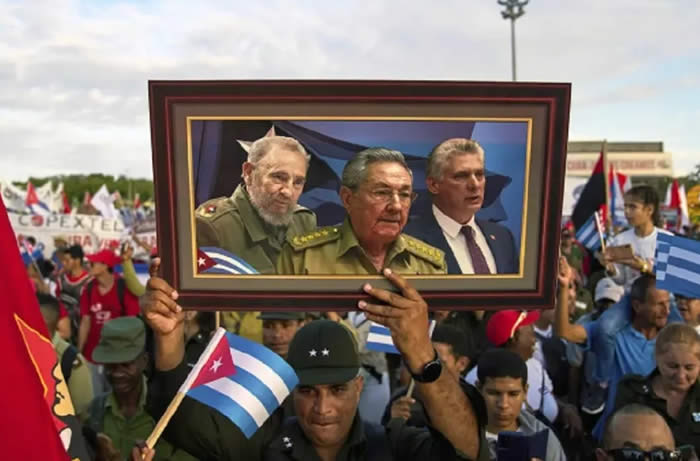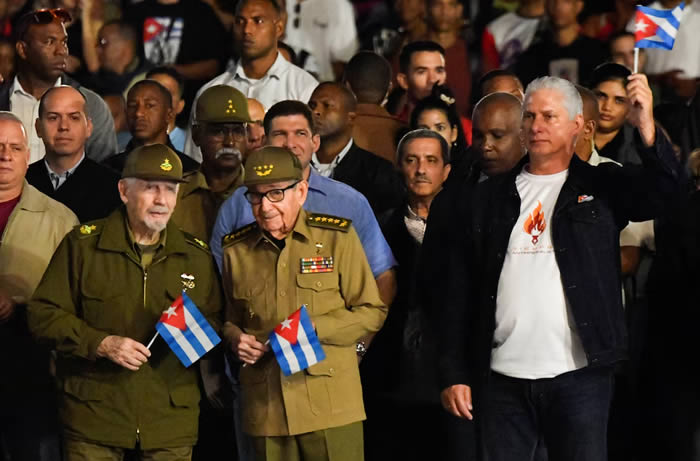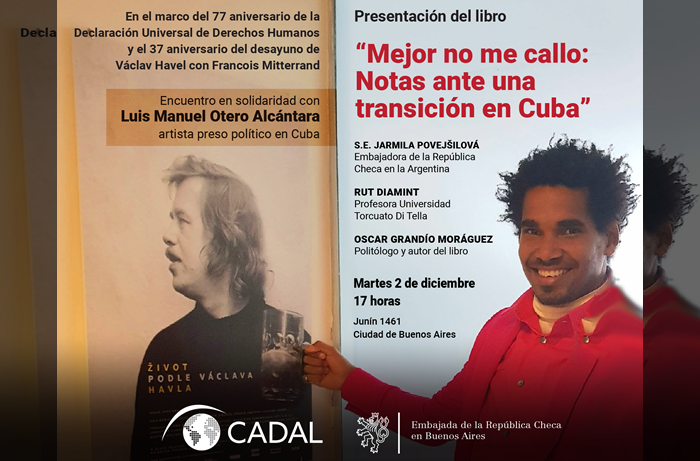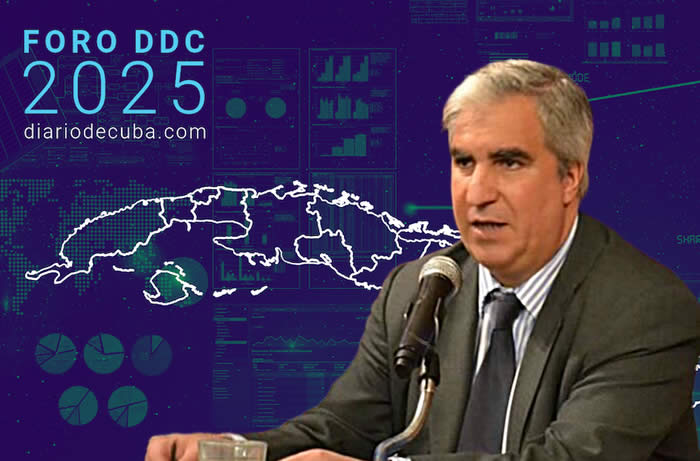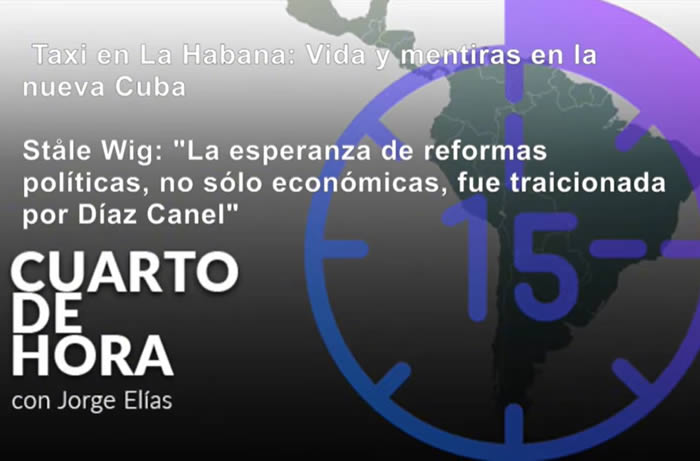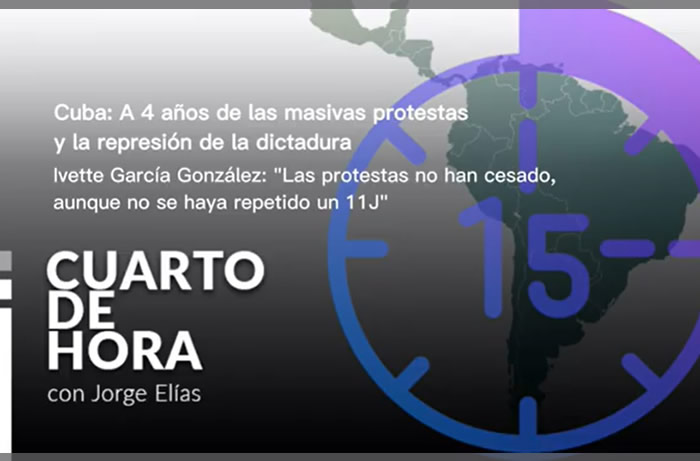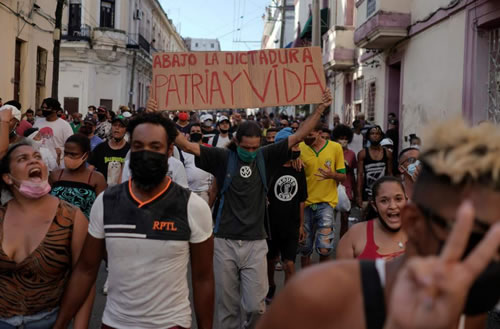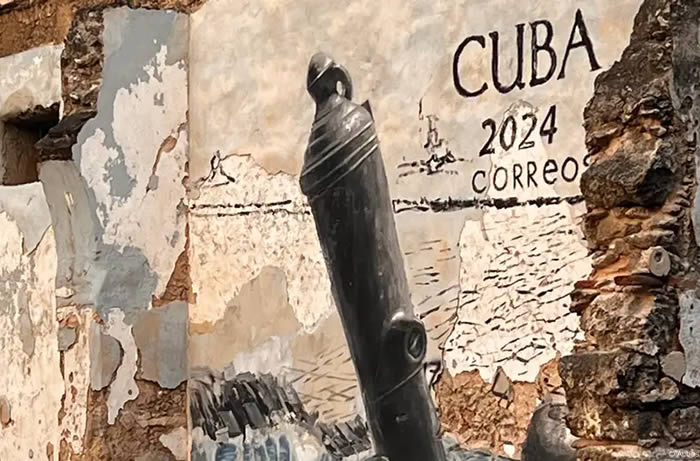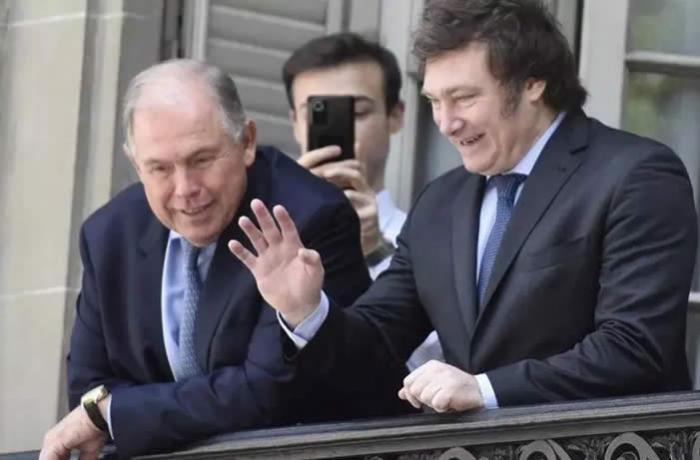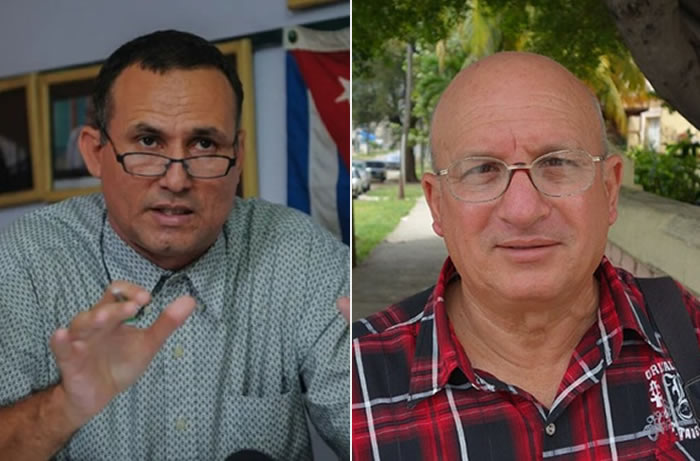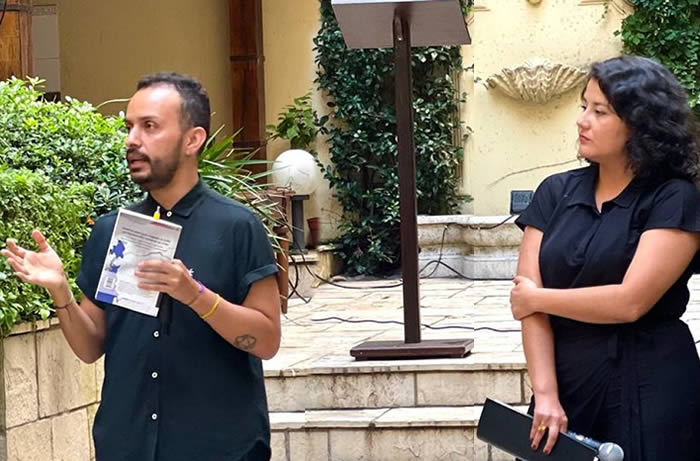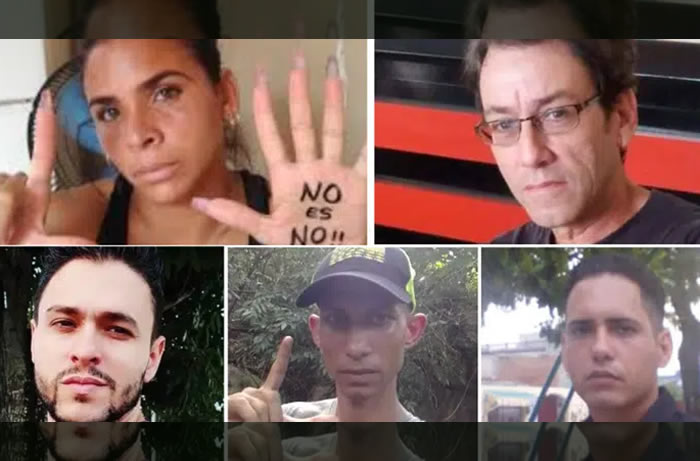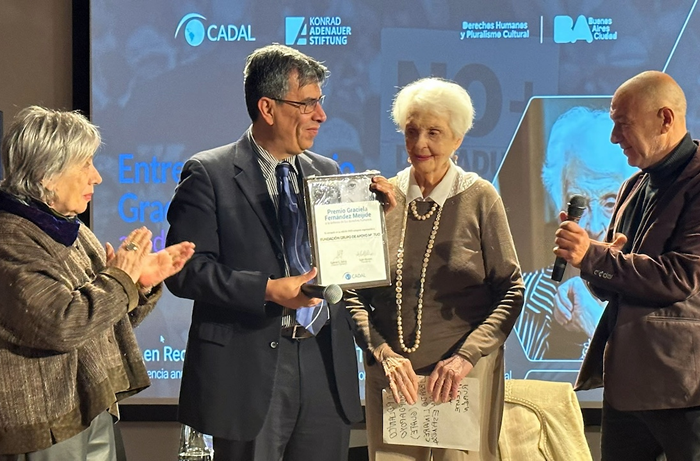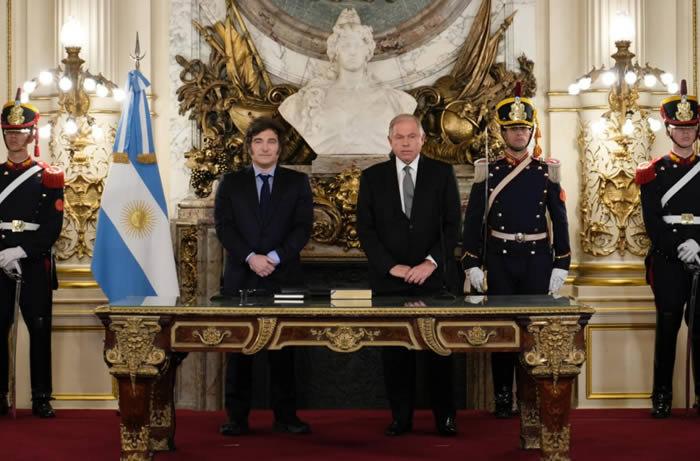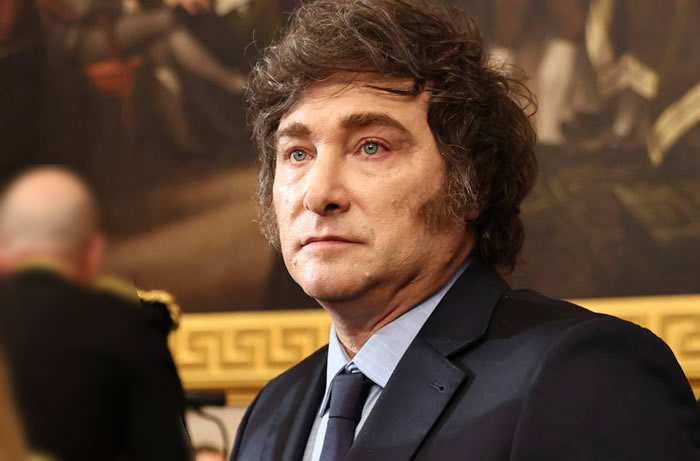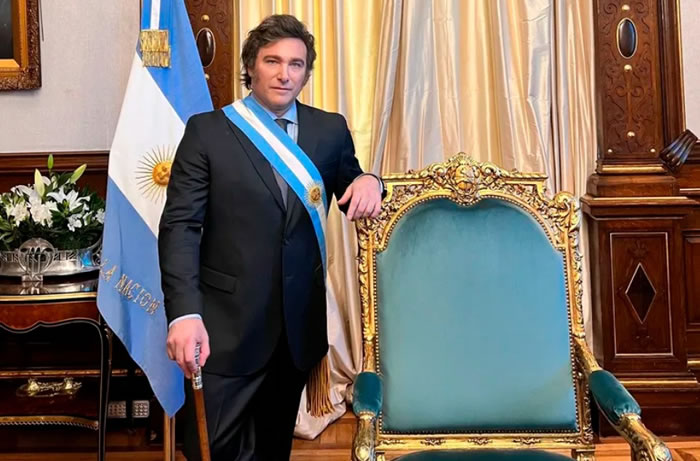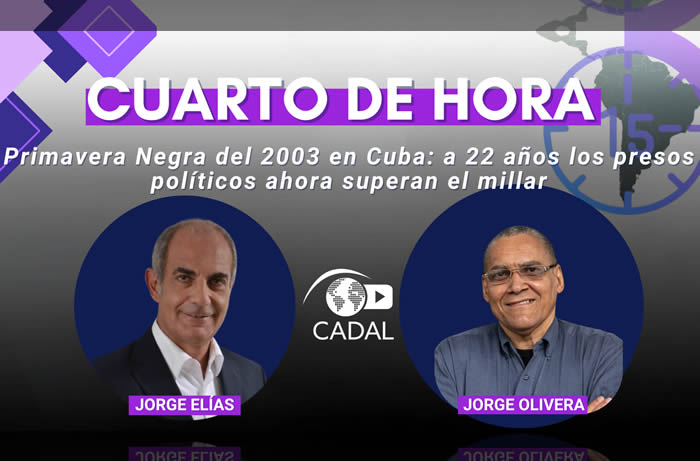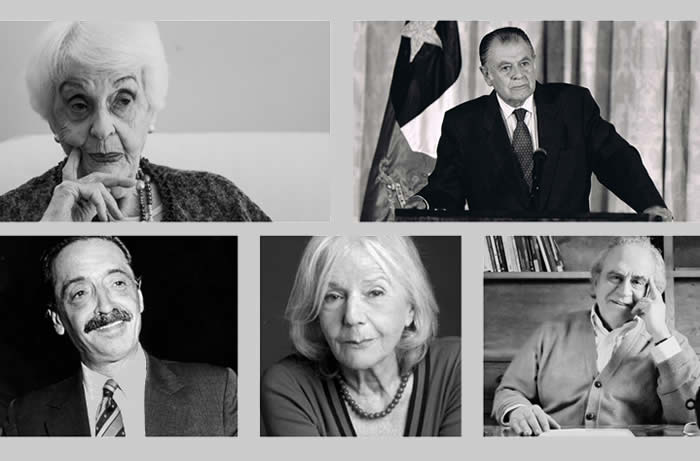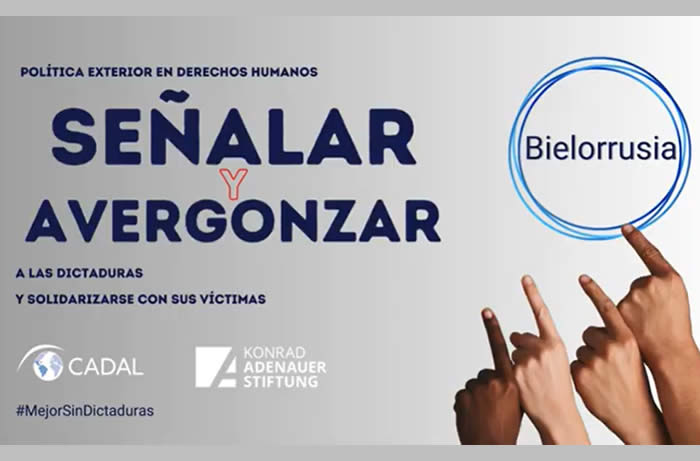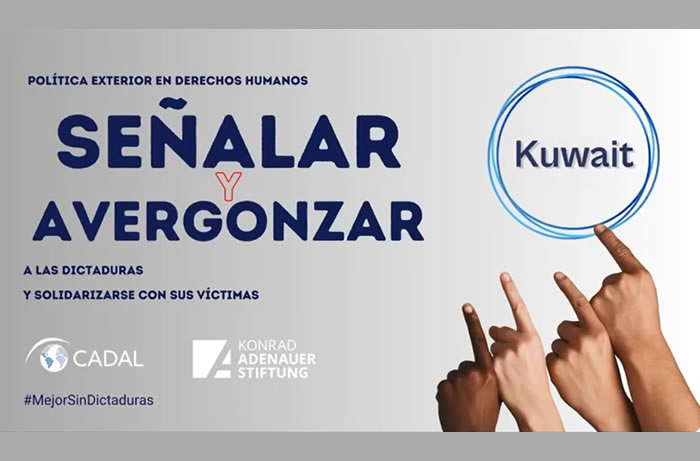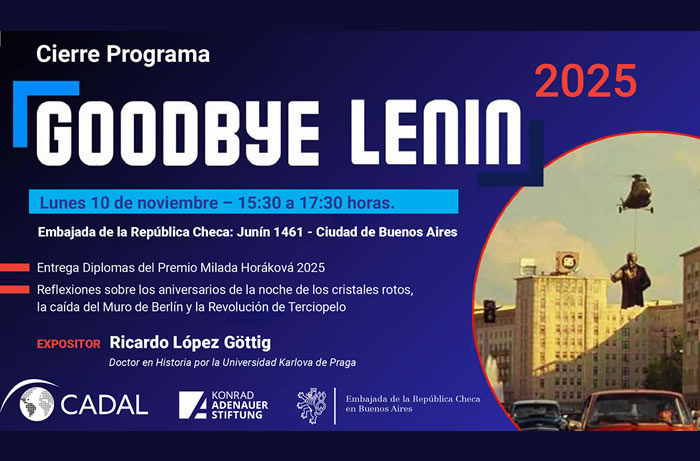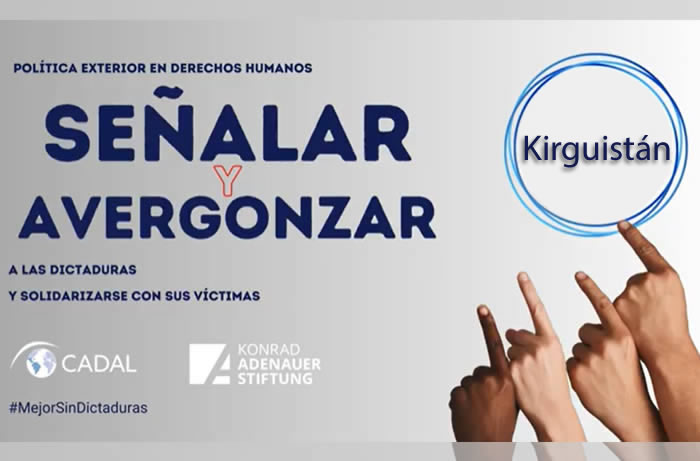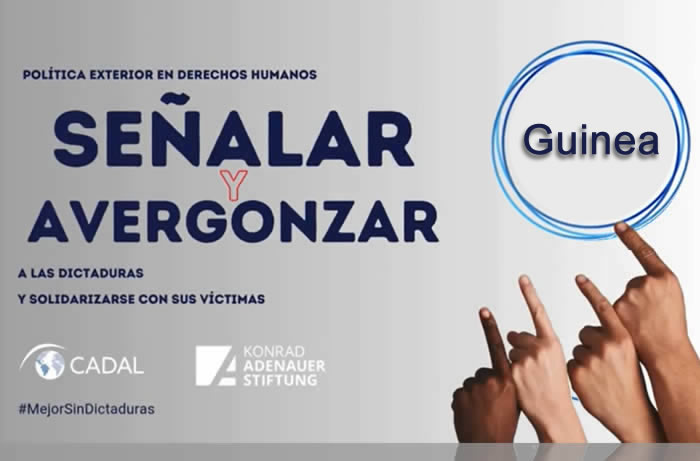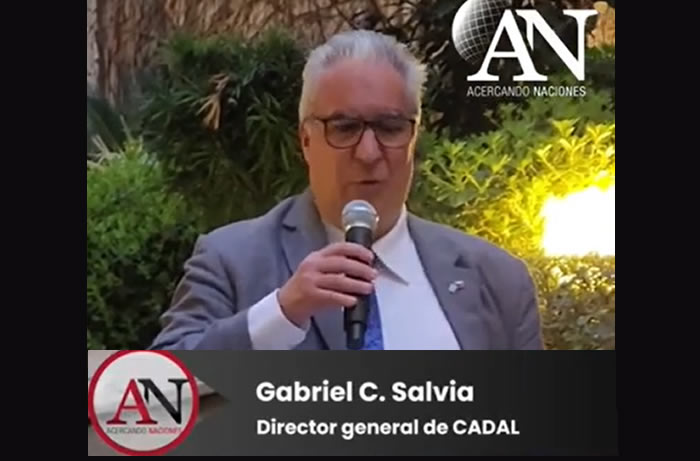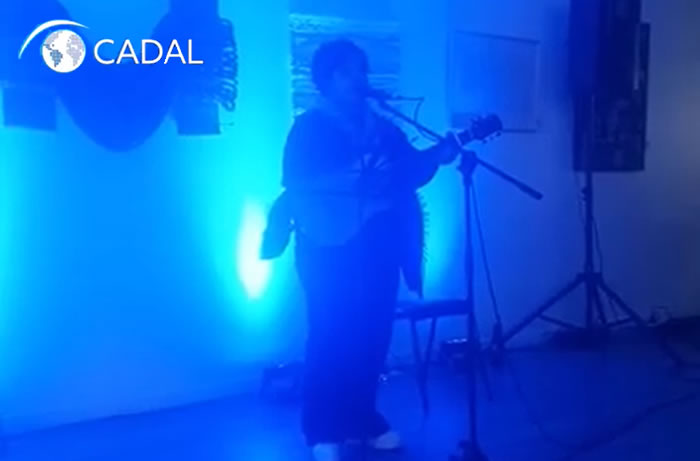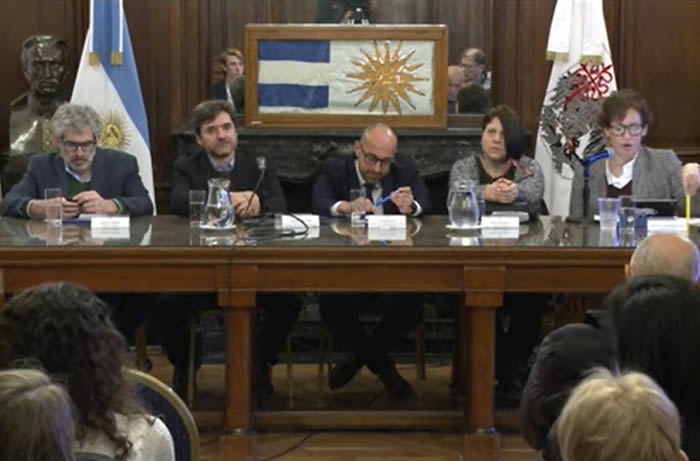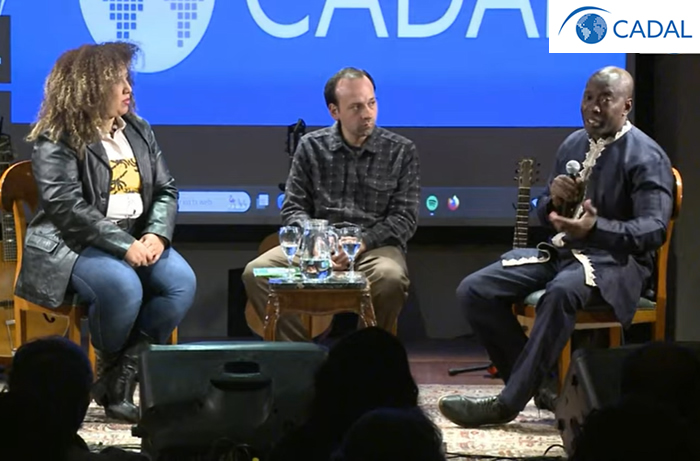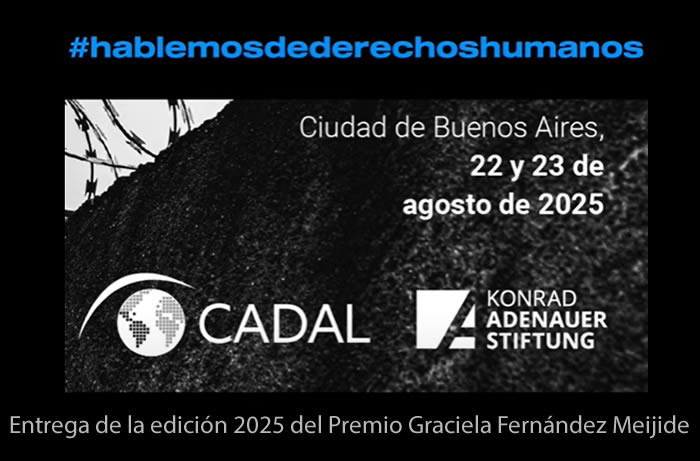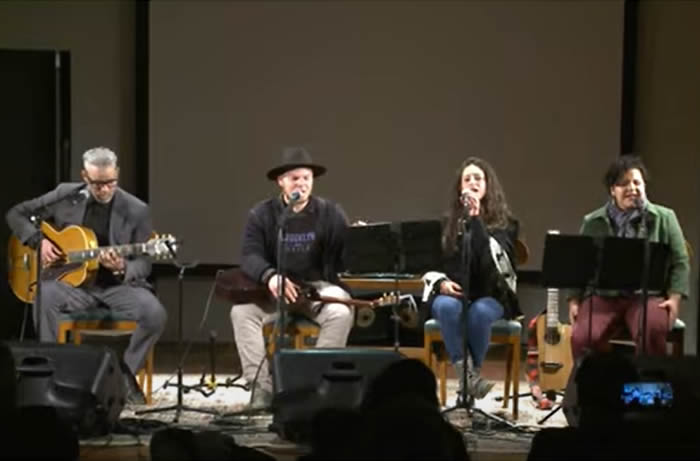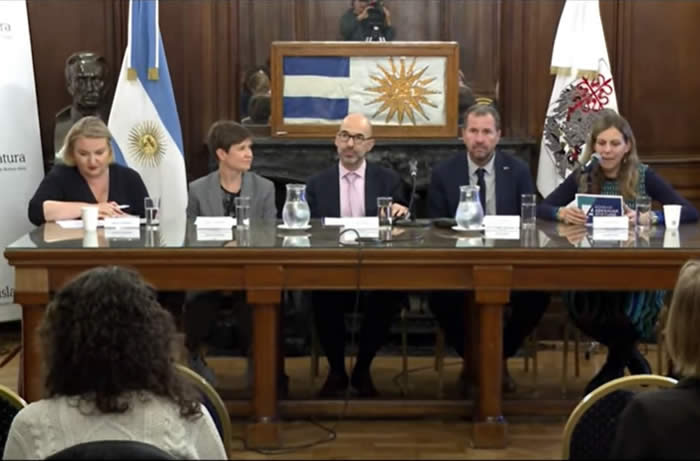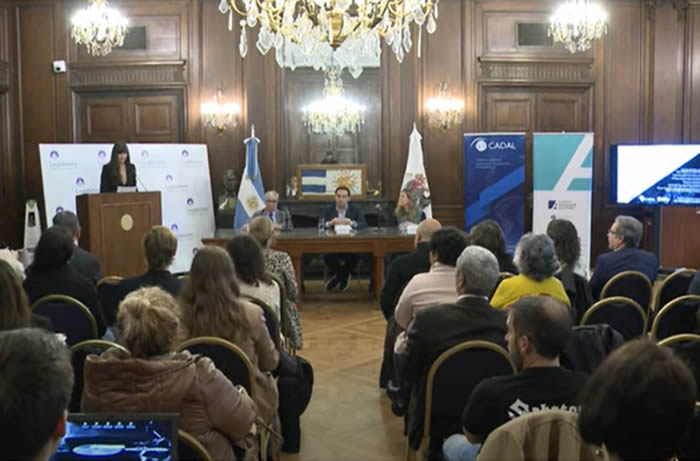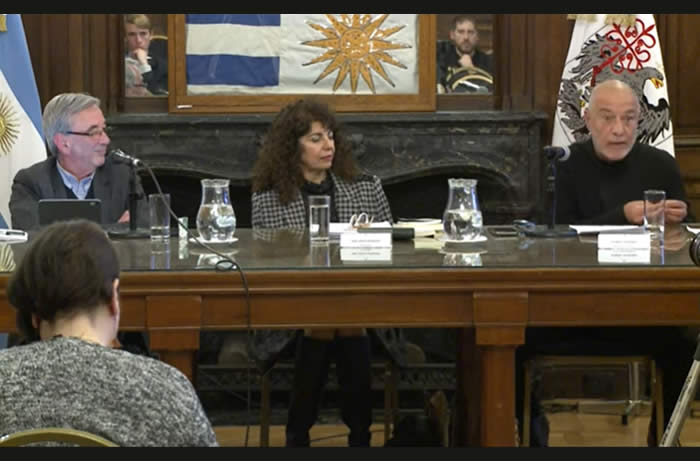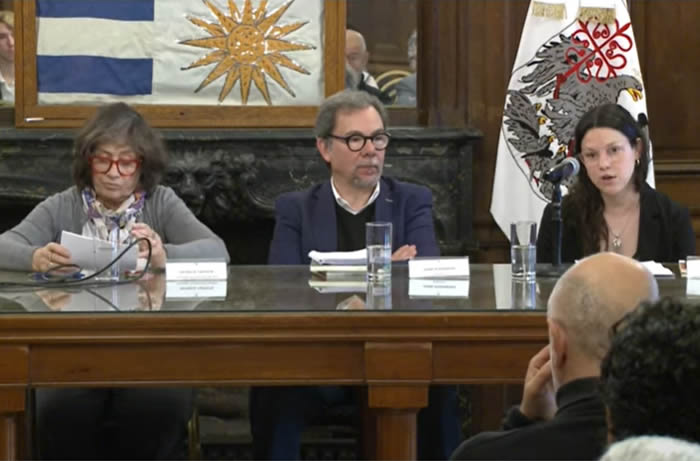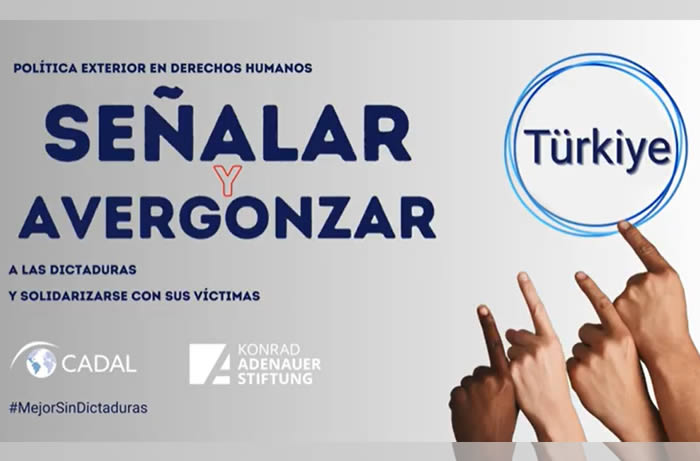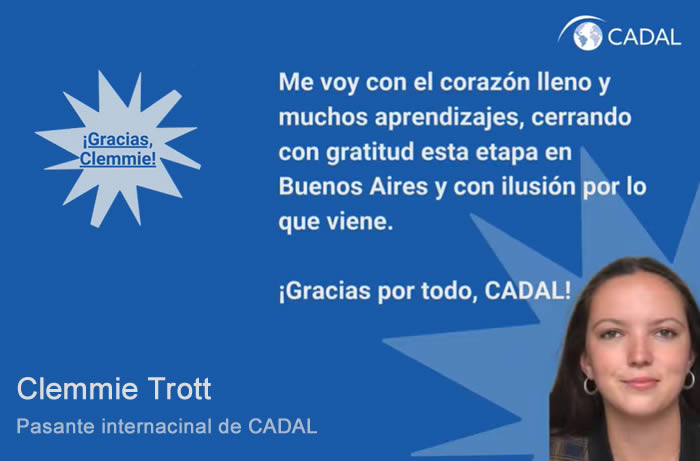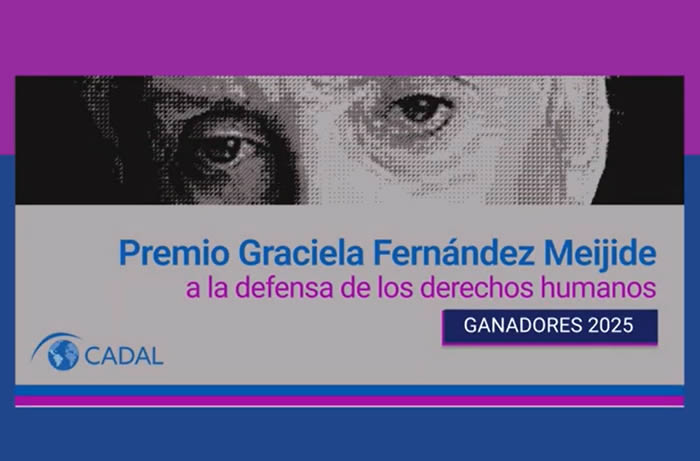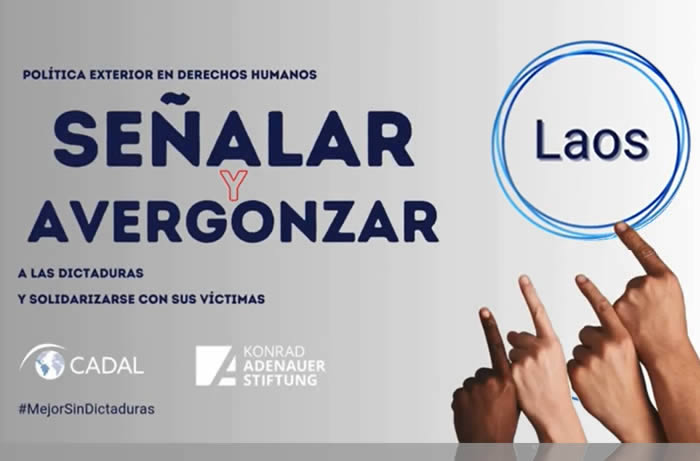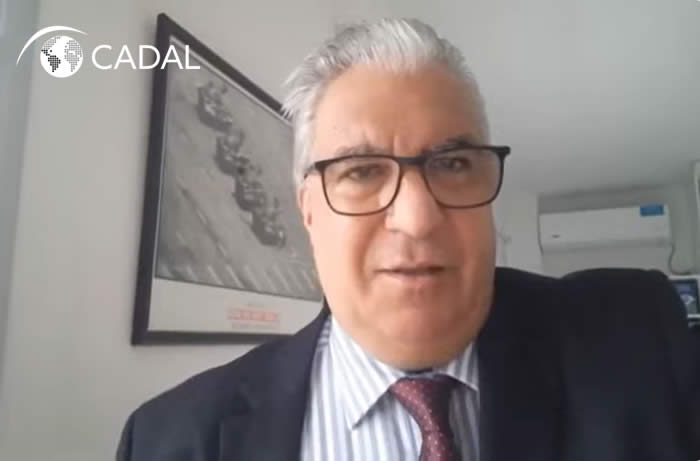Diálogo Latino Cubano
Promoción de la Apertura Política en Cuba
 17-01-2017
17-01-2017Is the U.S. opening to Cuba dead in the water?
Por Christopher Sabatini
(Latin America Goes Global) A few years ago, a former director of U.S. Southern Command—the U.S. military’s outpost in Miami that oversees defense policy south of the Mexico border—confided to me that the only real threat Cuba presented to U.S. security interests was the risk of a massive flood of Cuban migrants flowing across the Florida Straits. On Thursday, President Barack Obama reduced that likelihood by ending the 1995 “wet foot, dry foot” policy that granted any Cuban who set foot on U.S. soil the immediate right to residency and to apply for citizenship. By overturning a law criticized recently even by Cuban-American legislators, Obama has complicated what many expect will be President-elect Donald Trump’s plans to unwind the Obama administration’s recent and fragile normalization of relations with Cuba.
Throughout the campaign and the transition process, Trump has left many guessing what his administration will do when it comes to one of Obama’s signature foreign-policy legacies: the end of more than 50 years of U.S. hostility to Cuba and the Cuban Revolution. But given the members of the transition team, it seems likely that it will be rolled back as far as possible, even at the risk to U.S. security. How far, though, remains unclear.
As in many — if not all — areas of policy, Trump’s intentions on Cuba remain unclear and his signals contradictory. There was a 1998 Trump consultant tripthat violated the U.S. embargo on Cuba to explore business investments on the island; a primary campaign statement in which the real estate magnate mocked the embargo and said it was time to move on; a general election campaign stop with Cuban-Americans in Florida condemning Obama’s rapprochement with Cuba; a tweet denouncing Fidel Castro as a totalitarian dictator upon his death; and the recent appointment of hard-liners on Cuba policy to the Treasury Department and State Department transition teams — many of whom, like future National Security Advisor Michael Flynn, have asserted unsubstantiated claims of close ties between Iran and Cuba. Their appointments and the rumor that the administration has outsourced its Latin America policy to Sen. Marco Rubio and Rep. Ileana Ros-Lehtinen — both Cuba embargo advocates — raise concerns voiced by Trump and even Secretary of State-designate Rex Tillerson in his confirmation hearings this week that the United States should overturn the Cuba deal until it can get a better one on human rights. (Never mind the fact that the Cuba “deal” is actually a layered series of agreements and points of cooperation — you know, diplomacy.)
Whatever course Trump settles on will not only determine the fate of what was intended to be one of Obama’s foreign-policy legacies but will also shape relations with Latin America and the Caribbean and affect the security of U.S. citizens.
There are three possible Cuba scenarios in a Trump administration. The first is the uninterrupted continuation of Obama’s policy that has increased the scope of U.S.-Cuban commerce, allowed for expanded travel of U.S. citizens to the island, and normalized diplomatic relations. The second is rolling back all of the Obama changes, returning policy to the time of President George W. Bush, which would not only halt all U.S. economic activity and investment in Cuba but also end academic and cultural travel and return the Bush-era limits on the number of trips Cuban-Americans could take to the island and how much they could send their relatives through remittances. The third is a more moderate course of rolling back some of the more recent executive changes implemented by Obama — such as allowing for tourists to bring back unlimited amounts of state-produced rum and cigars — while still granting licenses for cultural and educational travel to permit contact between Cubans and Americans and maintaining crucial points of bilateral collaboration on counterterrorism, anti-narcotics trafficking, and migration.
The first option is the safest for U.S. national security interests and for relations in the hemisphere, which have improved as a result of the policy shift. Normalization of U.S.-Cuban diplomatic relations has brought a series of points of cooperation that provide a means for Cuban and U.S. officials to share information across a range of security interests. In an insecure world of terrorism and international crime, maintaining cooperation on matters of intelligence sharing or things like placing U.S. federal marshals on flights to the United States from a country just 90 miles off the coast of Florida would seem obvious. Unfortunately, given the Cuban embargo, hard-liners who have joined Trump’s transition team, and the lies they have peddled in the past about the island, it’s not the most likely course of events.
The insecurity of executive action
Can everything that the Obama administration has done since 2009 to improve relations with Cuba be undone? The short answer is: yes. All of the changes — starting with the 2009 lifting of limits on Cuban-Americans’ travel to the island to the loosening of restrictions on the U.S. import of Cuban cigars and rum — have been done through presidential action. Thus, they can be swept away with a stroke of President Trump’s pen.
Obama was forced to use executive action because the U.S. embargo on Cuba is law, thanks to a series of congressional actions — the Cuban Democracy Act of 1992 and Libertad Act of 1996. (In a possibly unconstitutional provision, the Libertad Act stipulates that a proposal to lift the U.S. embargo on Cuba can only be presented to Congress when the president can claim that credible steps have been made on the island toward free and fair elections and that basic human rights are being respected. This standard has never been applied to other sanctions and is quite likely unconstitutional given the U.S. Constitution’s limit on the Senate to play an “advise and consent” role in matters of foreign policy.)
Needless to say, a Congress that couldn’t even pass a budget to keep the government open wasn’t likely to pass something as contentious as lifting the embargo on a communist country of 11 million people, regardless of the logic of the embargo’s ineffectiveness in achieving its stated goals of promoting democracy. Even after Obama’s historic executive orders on Dec. 17, 2014, to open up avenues for commerce and normalize relations between the two countries, Congress remained under the sway of a small but singularly focused clique of Cuban-American lawmakers.
Six hard-line Cuban-American members of Congress have dedicated themselves to little more than exacting revenge on the Castro regime in the name of legitimate human rights concerns. Sens. Marco Rubio (R-Fla.) and Robert Menendez (D-N.J.), along with Reps. Albio Sires (D-N.J.), Mario Diaz Balart (R-Fla.), Ileana Ros-Lehtinen (R-Fla.), and Carlos Curbelo (R-Fla.), have maintained a chokehold on all issues related to Cuba. Now, allegedly, the Trump transition team — in an effort to co-opt and reward the only Latino group that supported his candidacy in any meaningful way — has outsourced the staffing of the administration’s Latin America team to these Cuban-American legislators. As a result, Ros-Lehtinen’s former staffer, Yleem Poblete, is on the State transition team, and the head of the “Capitol Hill Cubans,” Mauricio Claver-Carone, a pro-embargo lobbyist (supported by non-U.S. backers that have run Claver-Carone afoul of lobby rules) is on the Treasury transition team. It’s quite likely that unless Tillerson exerts greater control over his State team, these individuals will fill out the department and interagency Latin America team and press hard for the return of the Bush-era embargo.
Obama’s executive actions reflected a strategy designed to vest U.S. businesses in sectors such as telecoms, agriculture, and hospitality in Cuba in such a way that any future administration would find it difficult to roll back this opening. The same logic was at work in Obama’s effort to lower the barriers to U.S. tourism to the island. In 2015, the administration allowed U.S. citizens to travel to the island under the “people to people” justificationsimply by checking a box, rather than requiring them to ally themselves with a Treasury-licensed organization. Likewise, the recent changes to the “wet foot, dry foot” immigration policy appear designed so that Trump — who has railed against immigrants with names like García and Rodríguez arriving in the United States without documentation — will struggle politically to explain why he is restoring their singular ability to arrive here and gain residency.
In retrospect, Obama’s Cuba policy strategy looks foolishly naive. While American Airlines, Delta, and JetBlue have established daily flights to several cities on the island — such as Havana, Santa Clara, Holguín, and Cienfuegos — and though Google and Four Points by Sheraton have cut business deals with Raúl Castro’s government, Cubans have been achingly slow in moving forward on the hundreds of business propositions they have received from countless trips and delegations in the past two years. The hoped-for hue and cry from businesses against any effort to retighten the U.S. embargo simply may not be loud enough. The gap may only leave Trump more room to showcase his “fantastic” business acumen in opening Cuba’s markets to U.S. exports.
National security interests
But the results of diplomatic normalization and the bilateral points of collaboration between the two countries should give the Trump administration pause in overturning the past two years of relations. The keystone of Obama’s policy shift was the normalization of relations between the two countries that had been broken since 1961. Obama’s announcement at the close of 2014 led to a series of bilateral discussions that produced collaboration on a range of issues. Among them were working with the Cuban government to adopt international standards for port security and the sharing of information on maritime traffic; collaboration between law enforcement agencies on counternarcotics, fraud identification, human smuggling, and cybercrime; and a framework agreement between U.S. Homeland Security and Cuban counterparts on travel and border security. Deals have also been signed for scientific cooperation on Zika, dengue, andchikungunya vector diseases, as well as climate change and environmental protection. The warming relations have also allowed the first-ever trips by the International Committee of the Red Cross to observe prison conditions and plans for a visit by the U.N. special rapporteur for human trafficking.
In the midst of this flurry of diplomatic deal-making and unprecedented collaboration, in July 2015 — seven months after Obama’s December 2014 announcement — Washington and Havana inaugurated embassies and formally established ambassadorial posts. Cuba quickly named its ambassador, but Washington was stymied. In opposition to the administration’s policy, the Senate Foreign Relations Committee — spearheaded by Rubio — refused to confirm or even give a hearing to the capable U.S. career foreign service officer and Cuba expert Jeffrey DeLaurentis whom Obama nominated as ambassador. (Full disclosure: When I was at the National Endowment for Democracy, I worked with DeLaurentis during his first turn in Cuba to provide assistance to human rights groups and dissidents on the island.) It is a shame, if not a violation of the very democratic process that Rubio claims he wants to bring to Cuba, that a personal grudge prevented even a hearing in which DeLaurentis and others could have defended the policy and developments on the ground in Havana. It’s a greater shame that the accords that now permit senior U.S. diplomats to travel freely around the island to meet with and distribute goods to human rights activists — a right that Cuba hard-liners have demanded for years — have not been acknowledged or recognized as worthy of protecting. Rolling back normalization may well confine U.S. diplomats to within the walls of the U.S. Embassy, severely restricting their ability to interact with democracy activists across the island.
Many of the accords struck in the past two years governing border security, scientific, intelligence, and law enforcement cooperation could be at risk under the Trump administration. Ironically, the very justification that will likely be used to slam the door is the best rationale for keeping the cooperation in place.
Cuban-American and embargo hard-liners have long peddled alarmist theories connecting dots of evidence to argue that Iran and Hezbollah have extended their hold over Cuba and are collaborating just 90 miles off the coast of U.S. territory. While the Iranian government and the Castro regime have made contact — including the recent visit of Iranian President Hassan Rouhani on Sept. 19 — and evidence exists of citizens from the Caribbean traveling to join jihadi groups in the Middle East, the more extreme claims of an Iran-Cuba-Latin America axis have been disproved by the State Department and the Center for Strategic and International Studies. Nevertheless, such claims will find a warm reception with incoming National Security Advisor Flynn, an Islamophobe who has written that radical Islamists have allied with anti-American countries such as North Korea, Russia, China, Cuba, and Venezuela. Notably, Flynn didn’t provide any evidence to back up his bold assertion.
It’s no stretch to imagine such unsubstantiated claims being used to suspend U.S.-Cuban diplomatic relations and security cooperation. But such a response would raise the question: Shouldn’t the answer be moresecurity and intelligence cooperation rather than less?
Even assuming less than honorable intentions by the Cuban regime, standardizing security protocols in airports and port procedures and sharing information could give U.S. intelligence and law enforcement access to information and basing guarantees — not just for any potential threat from Cuba but also across the Caribbean. Moreover, by slamming the door again on a Cuban government about to go through a generational shift from the now deceased Fidel and his brother Raúl — who has promised to step down in January 2018 — the Trump administration would cede the initiative from reformers and give ammunition to any number of anti-U.S. actors that may seek to influence or gain a toehold in Cuba. This would include not only Iran and Islamist groups but also Russia and narcotics traffickers — for whom the northern Cuban coastline would be prime real estate for moving “product.”
And who wants to be the U.S. administration official forced to explain to the public that our ability to halt the progress of the Zika virus has been weakened by our now suspended cooperation with an island 90 miles off the coast of Florida?
Human rights and economic space
Obama’s 2014 allowances were justified as providing opportunities for greater communication and support to the growing entrepreneurial sector on the island. Those early changes permitted travel and investment from the United States and opened the door to banking and commerce to permit the now more than 520,000 independent Cuban entrepreneurs to gain access to credit, wholesale goods, and the U.S. market. This entrepreneurial class had started to spring up in the wake of the 2010 government reforms that created 300 categories for independent start-ups in areas as varied as restaurants, bed and breakfasts, taxi services, construction, event planning, and computer repair. The always industrious, creative Cubans rushed to fill the opportunity, giving them a newfound economic independence from smothering state control.
Obama’s later adjustments went further, including a series of provisions in October 2016 that allow U.S. tourists to bring back unlimited amounts of Cuban cigars and rum — industries run by the state. The administration also lowered the requirements for “people to people” or purposeful travel. As Obama noted during his historic March 2016 trip to Cuba, the stated aim was to advance democracy and human rights on the repressive island — predicated on the idea that greater communication and contact with outsiders, by expanding economic space for independent businesses, would pry the Cuban state’s fingers away from a population cowed and atomized by 50-plus years of repression.
Nevertheless, in the two years since the changes were implemented, the number of temporary detentions of human rights activists and dissidents has increased. According to the Cuban Commission for Human Rights and National Reconciliation, in 2015 Cuban security forces detained more than 8,600 people. That number spiked during Obama’s trip to Cuba: State security summarily rounded up 50 potential protestors and parked officers in front of the houses of other suspected agitators to prevent them from staging a demonstration.
But a bit of perspective is in order. First, while temporary detention and physical abuse are gross human rights violations and certainly no picnic for those on the receiving end of Cuban government brutality, the gravity of sentencing differs markedly from the past — in which dissidents were imprisoned for years on end. Second, in the past eight years, Cuba has freed many of its political prisoners, from a high of around 200 to fewer than two dozen today. Third, these official numbers are likely inflated, as they count multiple detentions for the same dissidents. Also often left out of the spurious correlation of the Obama administration’s policy and the number of detentions is an inconvenient fact: The worst wave of state oppression occurred at the toughest point of the U.S. embargo on Cuba, in 2003 under the Bush administration — when the state rounded up 75 independent activists and sentenced them, in kangaroo courts, to an average of 20 years in prison.
Could the Obama administration have done more to speak out about human rights violations on the island and even attempted to condition its opening on better policies? Yes. But don’t conflate the human rights violations today with U.S. policy, unless you’re willing to defend the Black Spring of 2003. (Those rounded up in 2003 were later released in a Vatican-brokered agreement in 2010 while the Obama administration was negotiating its opening to Cuba.)
Trump’s Cuban courses
One possible middle course is for the Trump administration to roll back some of the later executive actions while keeping the core of the reforms, including normalization and cooperation on matters of security. Among those that could be on the chopping block are the October 2016 changes that allow U.S. travelers to bring back with them unlimited quantities of rum and cigars and that permit U.S. pharmaceutical companies to pair up with Cuban biotech firms for joint research and development. Both of those reforms go beyond the original intent of assisting independent entrepreneurs and supporting communication with the Cuban people. On the new administration’s target list would also likely be the 2015 executive order allowing individuals to travel freely to Cuba.
But there’s an even worst-case scenario than rolling back all Obama-era changes. Given what we have already seen of Trump’s intemperate calling-out of U.S. industries and disregard for conflicts of interest, it is not a stretch to imagine the president-elect thumbing his nose at the investors already on the island by subverting existing contracts and deals to return to a pre-2009 state of embargo.
Such an action would be all the better to preserve a virgin Cuba for Trump hotels, casinos, and golf courses — four or eight years down the road. Then, the Trump Organization would be free to re-create the island in its image. If that came true, how sad it would be that the Cuban-Americans and hard-liners advising the administration would have turned the country’s clock back to the days when the island was a playground for vulgar gringos who came to the island to partake in its casinos, high-end hotels, and other decadent pleasures.
 Christopher SabatiniConsejero Consultivo
Christopher SabatiniConsejero ConsultivoTiene un doctorado en Gobierno de la Universidad de Virginia. Es investigador principal para América Latina en Chatham House, y anteriormente fue profesor en la Escuela de Asuntos Internacionales y Públicos (SIPA) de la Universidad de Columbia.
Forma parte de los consejos asesores de la Universidad de Harvard, de la División de las Américas del Comité Asesor de Human Rights Watch y de la Fundación Interamericana. También es un HFX Fellow en el Foro de Seguridad Internacional de Halifax.
Es un colaborador frecuente de revistas y periódicos de política y aparece en los medios de comunicación y en paneles sobre cuestiones relacionadas con América Latina y la política exterior. Ha testificado en múltiples ocasiones ante el Senado y la Cámara de Representantes de los Estados Unidos.
En 2015 fundó y dirigió una nueva organización de investigación sin fines de lucro, Global Americas, y editó su sitio web de noticias y opinión. De 2005 a 2014 fue director superior de política de la Sociedad y el Consejo de las Américas (AS/COA) y fundador y editor jefe de la revista de política hemisférica Americas Quarterly (AQ). En la AS/COA presidió los grupos de trabajo de la organización sobre el estado de derecho y Cuba.
Anteriormente, fue director para América Latina y el Caribe del National Endowment for Democracy, y becario de diplomacia de la Asociación Americana para el Avance de la Ciencia, trabajando en el Centro para la Democracia y la Gobernanza de la Agencia de los Estados Unidos para el Desarrollo Internacional.
(Latin America Goes Global) A few years ago, a former director of U.S. Southern Command—the U.S. military’s outpost in Miami that oversees defense policy south of the Mexico border—confided to me that the only real threat Cuba presented to U.S. security interests was the risk of a massive flood of Cuban migrants flowing across the Florida Straits. On Thursday, President Barack Obama reduced that likelihood by ending the 1995 “wet foot, dry foot” policy that granted any Cuban who set foot on U.S. soil the immediate right to residency and to apply for citizenship. By overturning a law criticized recently even by Cuban-American legislators, Obama has complicated what many expect will be President-elect Donald Trump’s plans to unwind the Obama administration’s recent and fragile normalization of relations with Cuba.
Throughout the campaign and the transition process, Trump has left many guessing what his administration will do when it comes to one of Obama’s signature foreign-policy legacies: the end of more than 50 years of U.S. hostility to Cuba and the Cuban Revolution. But given the members of the transition team, it seems likely that it will be rolled back as far as possible, even at the risk to U.S. security. How far, though, remains unclear.
As in many — if not all — areas of policy, Trump’s intentions on Cuba remain unclear and his signals contradictory. There was a 1998 Trump consultant tripthat violated the U.S. embargo on Cuba to explore business investments on the island; a primary campaign statement in which the real estate magnate mocked the embargo and said it was time to move on; a general election campaign stop with Cuban-Americans in Florida condemning Obama’s rapprochement with Cuba; a tweet denouncing Fidel Castro as a totalitarian dictator upon his death; and the recent appointment of hard-liners on Cuba policy to the Treasury Department and State Department transition teams — many of whom, like future National Security Advisor Michael Flynn, have asserted unsubstantiated claims of close ties between Iran and Cuba. Their appointments and the rumor that the administration has outsourced its Latin America policy to Sen. Marco Rubio and Rep. Ileana Ros-Lehtinen — both Cuba embargo advocates — raise concerns voiced by Trump and even Secretary of State-designate Rex Tillerson in his confirmation hearings this week that the United States should overturn the Cuba deal until it can get a better one on human rights. (Never mind the fact that the Cuba “deal” is actually a layered series of agreements and points of cooperation — you know, diplomacy.)
Whatever course Trump settles on will not only determine the fate of what was intended to be one of Obama’s foreign-policy legacies but will also shape relations with Latin America and the Caribbean and affect the security of U.S. citizens.
There are three possible Cuba scenarios in a Trump administration. The first is the uninterrupted continuation of Obama’s policy that has increased the scope of U.S.-Cuban commerce, allowed for expanded travel of U.S. citizens to the island, and normalized diplomatic relations. The second is rolling back all of the Obama changes, returning policy to the time of President George W. Bush, which would not only halt all U.S. economic activity and investment in Cuba but also end academic and cultural travel and return the Bush-era limits on the number of trips Cuban-Americans could take to the island and how much they could send their relatives through remittances. The third is a more moderate course of rolling back some of the more recent executive changes implemented by Obama — such as allowing for tourists to bring back unlimited amounts of state-produced rum and cigars — while still granting licenses for cultural and educational travel to permit contact between Cubans and Americans and maintaining crucial points of bilateral collaboration on counterterrorism, anti-narcotics trafficking, and migration.
The first option is the safest for U.S. national security interests and for relations in the hemisphere, which have improved as a result of the policy shift. Normalization of U.S.-Cuban diplomatic relations has brought a series of points of cooperation that provide a means for Cuban and U.S. officials to share information across a range of security interests. In an insecure world of terrorism and international crime, maintaining cooperation on matters of intelligence sharing or things like placing U.S. federal marshals on flights to the United States from a country just 90 miles off the coast of Florida would seem obvious. Unfortunately, given the Cuban embargo, hard-liners who have joined Trump’s transition team, and the lies they have peddled in the past about the island, it’s not the most likely course of events.
The insecurity of executive action
Can everything that the Obama administration has done since 2009 to improve relations with Cuba be undone? The short answer is: yes. All of the changes — starting with the 2009 lifting of limits on Cuban-Americans’ travel to the island to the loosening of restrictions on the U.S. import of Cuban cigars and rum — have been done through presidential action. Thus, they can be swept away with a stroke of President Trump’s pen.
Obama was forced to use executive action because the U.S. embargo on Cuba is law, thanks to a series of congressional actions — the Cuban Democracy Act of 1992 and Libertad Act of 1996. (In a possibly unconstitutional provision, the Libertad Act stipulates that a proposal to lift the U.S. embargo on Cuba can only be presented to Congress when the president can claim that credible steps have been made on the island toward free and fair elections and that basic human rights are being respected. This standard has never been applied to other sanctions and is quite likely unconstitutional given the U.S. Constitution’s limit on the Senate to play an “advise and consent” role in matters of foreign policy.)
Needless to say, a Congress that couldn’t even pass a budget to keep the government open wasn’t likely to pass something as contentious as lifting the embargo on a communist country of 11 million people, regardless of the logic of the embargo’s ineffectiveness in achieving its stated goals of promoting democracy. Even after Obama’s historic executive orders on Dec. 17, 2014, to open up avenues for commerce and normalize relations between the two countries, Congress remained under the sway of a small but singularly focused clique of Cuban-American lawmakers.
Six hard-line Cuban-American members of Congress have dedicated themselves to little more than exacting revenge on the Castro regime in the name of legitimate human rights concerns. Sens. Marco Rubio (R-Fla.) and Robert Menendez (D-N.J.), along with Reps. Albio Sires (D-N.J.), Mario Diaz Balart (R-Fla.), Ileana Ros-Lehtinen (R-Fla.), and Carlos Curbelo (R-Fla.), have maintained a chokehold on all issues related to Cuba. Now, allegedly, the Trump transition team — in an effort to co-opt and reward the only Latino group that supported his candidacy in any meaningful way — has outsourced the staffing of the administration’s Latin America team to these Cuban-American legislators. As a result, Ros-Lehtinen’s former staffer, Yleem Poblete, is on the State transition team, and the head of the “Capitol Hill Cubans,” Mauricio Claver-Carone, a pro-embargo lobbyist (supported by non-U.S. backers that have run Claver-Carone afoul of lobby rules) is on the Treasury transition team. It’s quite likely that unless Tillerson exerts greater control over his State team, these individuals will fill out the department and interagency Latin America team and press hard for the return of the Bush-era embargo.
Obama’s executive actions reflected a strategy designed to vest U.S. businesses in sectors such as telecoms, agriculture, and hospitality in Cuba in such a way that any future administration would find it difficult to roll back this opening. The same logic was at work in Obama’s effort to lower the barriers to U.S. tourism to the island. In 2015, the administration allowed U.S. citizens to travel to the island under the “people to people” justificationsimply by checking a box, rather than requiring them to ally themselves with a Treasury-licensed organization. Likewise, the recent changes to the “wet foot, dry foot” immigration policy appear designed so that Trump — who has railed against immigrants with names like García and Rodríguez arriving in the United States without documentation — will struggle politically to explain why he is restoring their singular ability to arrive here and gain residency.
In retrospect, Obama’s Cuba policy strategy looks foolishly naive. While American Airlines, Delta, and JetBlue have established daily flights to several cities on the island — such as Havana, Santa Clara, Holguín, and Cienfuegos — and though Google and Four Points by Sheraton have cut business deals with Raúl Castro’s government, Cubans have been achingly slow in moving forward on the hundreds of business propositions they have received from countless trips and delegations in the past two years. The hoped-for hue and cry from businesses against any effort to retighten the U.S. embargo simply may not be loud enough. The gap may only leave Trump more room to showcase his “fantastic” business acumen in opening Cuba’s markets to U.S. exports.
National security interests
But the results of diplomatic normalization and the bilateral points of collaboration between the two countries should give the Trump administration pause in overturning the past two years of relations. The keystone of Obama’s policy shift was the normalization of relations between the two countries that had been broken since 1961. Obama’s announcement at the close of 2014 led to a series of bilateral discussions that produced collaboration on a range of issues. Among them were working with the Cuban government to adopt international standards for port security and the sharing of information on maritime traffic; collaboration between law enforcement agencies on counternarcotics, fraud identification, human smuggling, and cybercrime; and a framework agreement between U.S. Homeland Security and Cuban counterparts on travel and border security. Deals have also been signed for scientific cooperation on Zika, dengue, andchikungunya vector diseases, as well as climate change and environmental protection. The warming relations have also allowed the first-ever trips by the International Committee of the Red Cross to observe prison conditions and plans for a visit by the U.N. special rapporteur for human trafficking.
In the midst of this flurry of diplomatic deal-making and unprecedented collaboration, in July 2015 — seven months after Obama’s December 2014 announcement — Washington and Havana inaugurated embassies and formally established ambassadorial posts. Cuba quickly named its ambassador, but Washington was stymied. In opposition to the administration’s policy, the Senate Foreign Relations Committee — spearheaded by Rubio — refused to confirm or even give a hearing to the capable U.S. career foreign service officer and Cuba expert Jeffrey DeLaurentis whom Obama nominated as ambassador. (Full disclosure: When I was at the National Endowment for Democracy, I worked with DeLaurentis during his first turn in Cuba to provide assistance to human rights groups and dissidents on the island.) It is a shame, if not a violation of the very democratic process that Rubio claims he wants to bring to Cuba, that a personal grudge prevented even a hearing in which DeLaurentis and others could have defended the policy and developments on the ground in Havana. It’s a greater shame that the accords that now permit senior U.S. diplomats to travel freely around the island to meet with and distribute goods to human rights activists — a right that Cuba hard-liners have demanded for years — have not been acknowledged or recognized as worthy of protecting. Rolling back normalization may well confine U.S. diplomats to within the walls of the U.S. Embassy, severely restricting their ability to interact with democracy activists across the island.
Many of the accords struck in the past two years governing border security, scientific, intelligence, and law enforcement cooperation could be at risk under the Trump administration. Ironically, the very justification that will likely be used to slam the door is the best rationale for keeping the cooperation in place.
Cuban-American and embargo hard-liners have long peddled alarmist theories connecting dots of evidence to argue that Iran and Hezbollah have extended their hold over Cuba and are collaborating just 90 miles off the coast of U.S. territory. While the Iranian government and the Castro regime have made contact — including the recent visit of Iranian President Hassan Rouhani on Sept. 19 — and evidence exists of citizens from the Caribbean traveling to join jihadi groups in the Middle East, the more extreme claims of an Iran-Cuba-Latin America axis have been disproved by the State Department and the Center for Strategic and International Studies. Nevertheless, such claims will find a warm reception with incoming National Security Advisor Flynn, an Islamophobe who has written that radical Islamists have allied with anti-American countries such as North Korea, Russia, China, Cuba, and Venezuela. Notably, Flynn didn’t provide any evidence to back up his bold assertion.
It’s no stretch to imagine such unsubstantiated claims being used to suspend U.S.-Cuban diplomatic relations and security cooperation. But such a response would raise the question: Shouldn’t the answer be moresecurity and intelligence cooperation rather than less?
Even assuming less than honorable intentions by the Cuban regime, standardizing security protocols in airports and port procedures and sharing information could give U.S. intelligence and law enforcement access to information and basing guarantees — not just for any potential threat from Cuba but also across the Caribbean. Moreover, by slamming the door again on a Cuban government about to go through a generational shift from the now deceased Fidel and his brother Raúl — who has promised to step down in January 2018 — the Trump administration would cede the initiative from reformers and give ammunition to any number of anti-U.S. actors that may seek to influence or gain a toehold in Cuba. This would include not only Iran and Islamist groups but also Russia and narcotics traffickers — for whom the northern Cuban coastline would be prime real estate for moving “product.”
And who wants to be the U.S. administration official forced to explain to the public that our ability to halt the progress of the Zika virus has been weakened by our now suspended cooperation with an island 90 miles off the coast of Florida?
Human rights and economic space
Obama’s 2014 allowances were justified as providing opportunities for greater communication and support to the growing entrepreneurial sector on the island. Those early changes permitted travel and investment from the United States and opened the door to banking and commerce to permit the now more than 520,000 independent Cuban entrepreneurs to gain access to credit, wholesale goods, and the U.S. market. This entrepreneurial class had started to spring up in the wake of the 2010 government reforms that created 300 categories for independent start-ups in areas as varied as restaurants, bed and breakfasts, taxi services, construction, event planning, and computer repair. The always industrious, creative Cubans rushed to fill the opportunity, giving them a newfound economic independence from smothering state control.
Obama’s later adjustments went further, including a series of provisions in October 2016 that allow U.S. tourists to bring back unlimited amounts of Cuban cigars and rum — industries run by the state. The administration also lowered the requirements for “people to people” or purposeful travel. As Obama noted during his historic March 2016 trip to Cuba, the stated aim was to advance democracy and human rights on the repressive island — predicated on the idea that greater communication and contact with outsiders, by expanding economic space for independent businesses, would pry the Cuban state’s fingers away from a population cowed and atomized by 50-plus years of repression.
Nevertheless, in the two years since the changes were implemented, the number of temporary detentions of human rights activists and dissidents has increased. According to the Cuban Commission for Human Rights and National Reconciliation, in 2015 Cuban security forces detained more than 8,600 people. That number spiked during Obama’s trip to Cuba: State security summarily rounded up 50 potential protestors and parked officers in front of the houses of other suspected agitators to prevent them from staging a demonstration.
But a bit of perspective is in order. First, while temporary detention and physical abuse are gross human rights violations and certainly no picnic for those on the receiving end of Cuban government brutality, the gravity of sentencing differs markedly from the past — in which dissidents were imprisoned for years on end. Second, in the past eight years, Cuba has freed many of its political prisoners, from a high of around 200 to fewer than two dozen today. Third, these official numbers are likely inflated, as they count multiple detentions for the same dissidents. Also often left out of the spurious correlation of the Obama administration’s policy and the number of detentions is an inconvenient fact: The worst wave of state oppression occurred at the toughest point of the U.S. embargo on Cuba, in 2003 under the Bush administration — when the state rounded up 75 independent activists and sentenced them, in kangaroo courts, to an average of 20 years in prison.
Could the Obama administration have done more to speak out about human rights violations on the island and even attempted to condition its opening on better policies? Yes. But don’t conflate the human rights violations today with U.S. policy, unless you’re willing to defend the Black Spring of 2003. (Those rounded up in 2003 were later released in a Vatican-brokered agreement in 2010 while the Obama administration was negotiating its opening to Cuba.)
Trump’s Cuban courses
One possible middle course is for the Trump administration to roll back some of the later executive actions while keeping the core of the reforms, including normalization and cooperation on matters of security. Among those that could be on the chopping block are the October 2016 changes that allow U.S. travelers to bring back with them unlimited quantities of rum and cigars and that permit U.S. pharmaceutical companies to pair up with Cuban biotech firms for joint research and development. Both of those reforms go beyond the original intent of assisting independent entrepreneurs and supporting communication with the Cuban people. On the new administration’s target list would also likely be the 2015 executive order allowing individuals to travel freely to Cuba.
But there’s an even worst-case scenario than rolling back all Obama-era changes. Given what we have already seen of Trump’s intemperate calling-out of U.S. industries and disregard for conflicts of interest, it is not a stretch to imagine the president-elect thumbing his nose at the investors already on the island by subverting existing contracts and deals to return to a pre-2009 state of embargo.
Such an action would be all the better to preserve a virgin Cuba for Trump hotels, casinos, and golf courses — four or eight years down the road. Then, the Trump Organization would be free to re-create the island in its image. If that came true, how sad it would be that the Cuban-Americans and hard-liners advising the administration would have turned the country’s clock back to the days when the island was a playground for vulgar gringos who came to the island to partake in its casinos, high-end hotels, and other decadent pleasures.

Tiene un doctorado en Gobierno de la Universidad de Virginia. Es investigador principal para América Latina en Chatham House, y anteriormente fue profesor en la Escuela de Asuntos Internacionales y Públicos (SIPA) de la Universidad de Columbia.
Forma parte de los consejos asesores de la Universidad de Harvard, de la División de las Américas del Comité Asesor de Human Rights Watch y de la Fundación Interamericana. También es un HFX Fellow en el Foro de Seguridad Internacional de Halifax.
Es un colaborador frecuente de revistas y periódicos de política y aparece en los medios de comunicación y en paneles sobre cuestiones relacionadas con América Latina y la política exterior. Ha testificado en múltiples ocasiones ante el Senado y la Cámara de Representantes de los Estados Unidos.
En 2015 fundó y dirigió una nueva organización de investigación sin fines de lucro, Global Americas, y editó su sitio web de noticias y opinión. De 2005 a 2014 fue director superior de política de la Sociedad y el Consejo de las Américas (AS/COA) y fundador y editor jefe de la revista de política hemisférica Americas Quarterly (AQ). En la AS/COA presidió los grupos de trabajo de la organización sobre el estado de derecho y Cuba.
Anteriormente, fue director para América Latina y el Caribe del National Endowment for Democracy, y becario de diplomacia de la Asociación Americana para el Avance de la Ciencia, trabajando en el Centro para la Democracia y la Gobernanza de la Agencia de los Estados Unidos para el Desarrollo Internacional.
